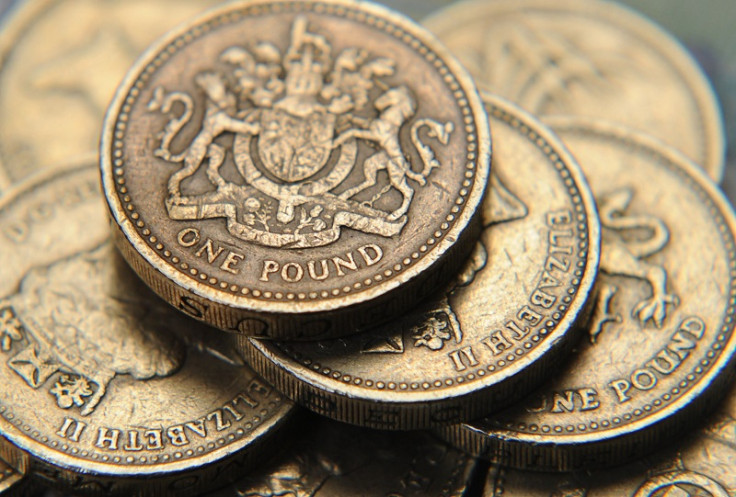FX Focus: Pound slips after reaching three-week high against the dollar
Dollar remains under pressure as investors grow concerned over Donald Trump's policies.

The pound slipped back on Wednesday (22 March), failing to maintain the momentum generated by a surge in inflation the previous day.
Sterling had looked to build on the gains recorded on Tuesday, when a spike in inflation propelled it to multi-week highs against the dollar and the pound, as it climbed above $1.25 for the first time since late last month.
However, the pound then relinquished those gains and, by mid-afternoon, it was 0.25% and 0.23% lower against both the dollar and the euro, trading at $1.2446 and €1.1510 respectively.
"That [the slight drop] is no major reversal of Tuesday's growth, but still a sign that investors perhaps don't see the pound being able to significantly break above $1.25 with the triggering of Article 50 looming next week," said Spreadex financial analyst Connor Campbell.
Elsewhere, the dollar struggled for direction, as investors faced the growing threat of Donald Trump's proposed pro-growth policies falling short of market expectations.
"The terrible mixture of protectionism fears and renewed Trump jitters have exposed the greenback to steep losses this week with the Dollar Index breaking below 100.00," said FXTM research analyst Lukman Otunuga.
"Bears have effectively exploited the 'dovish hike' to attack the dollar repeatedly with the uncertainty over Trump's economic growth agenda providing a foundation for sellers to install renewed rounds of selling."
Flat against the euro and the Canadian dollar, the greenback fell 0.53% and 0.54% lower against the Swiss Franc and the yen respectively, trading at CHF0.9886 and ¥111.13. The dollar, however, gained 0.10% against its Australian counterpart to AUD$1.3046.
Investors are said to be re-evaluating their optimism following a series of recent roadblocks ahead of the upcoming vote to do away with the Affordable Care Act. The roadblocks are said to be questioning Trump's ability to fulfil his promises.
Joel Kruger, foreign exchange strategist at LMAX Exchange, said: "The market has been selling more US dollars this week on worry the Obamacare repeal process will drag on, preventing President Trump from moving forward with dollar-supportive tax cuts and infrastructure spending.
"But if US equities also worry about setbacks from a holdup on healthcare reform, any dollar negatives from a delay in Trump's plans could be more than offset by a wave of safe haven dollar demand on risk liquidation flow."
© Copyright IBTimes 2025. All rights reserved.




















